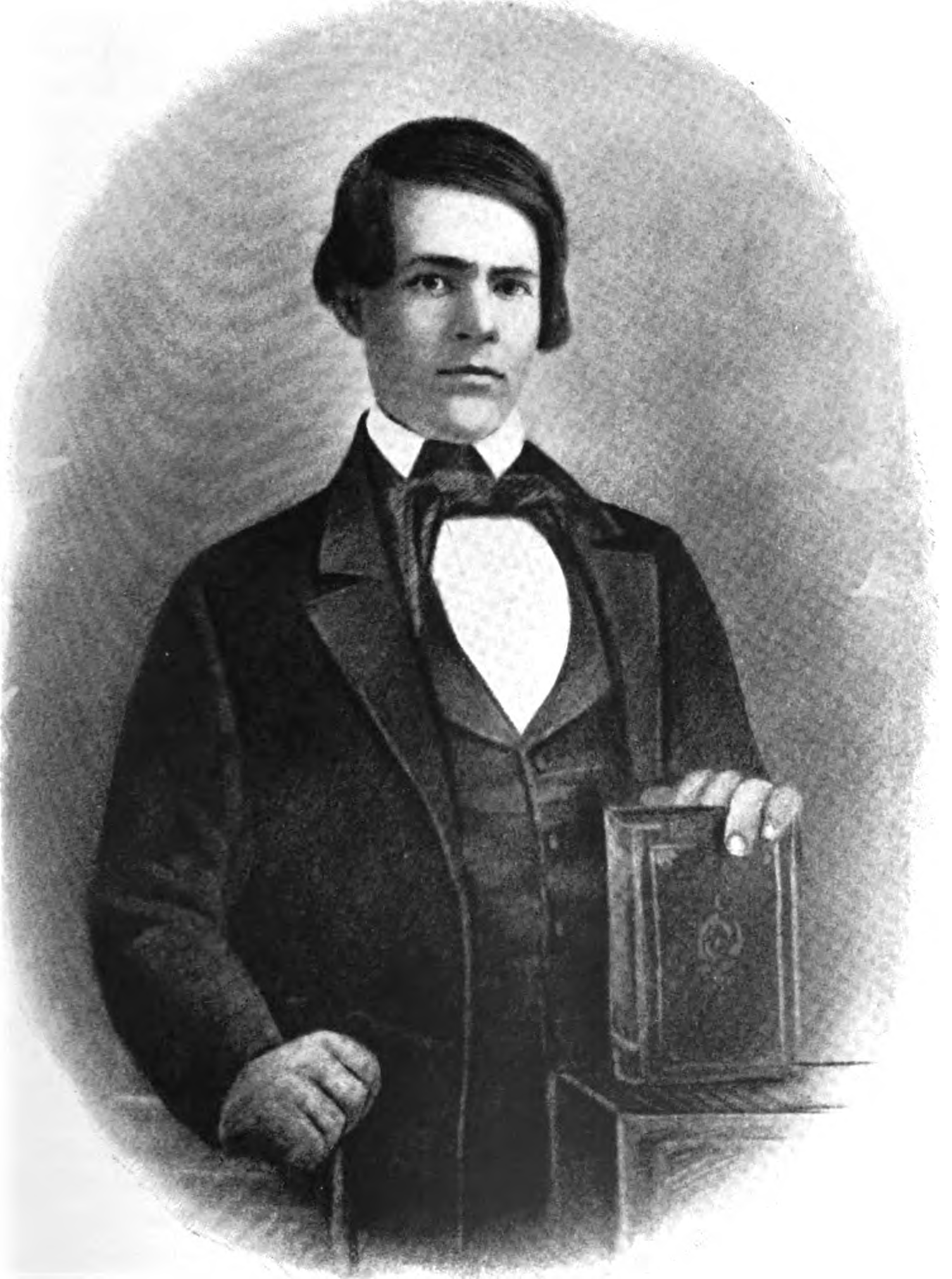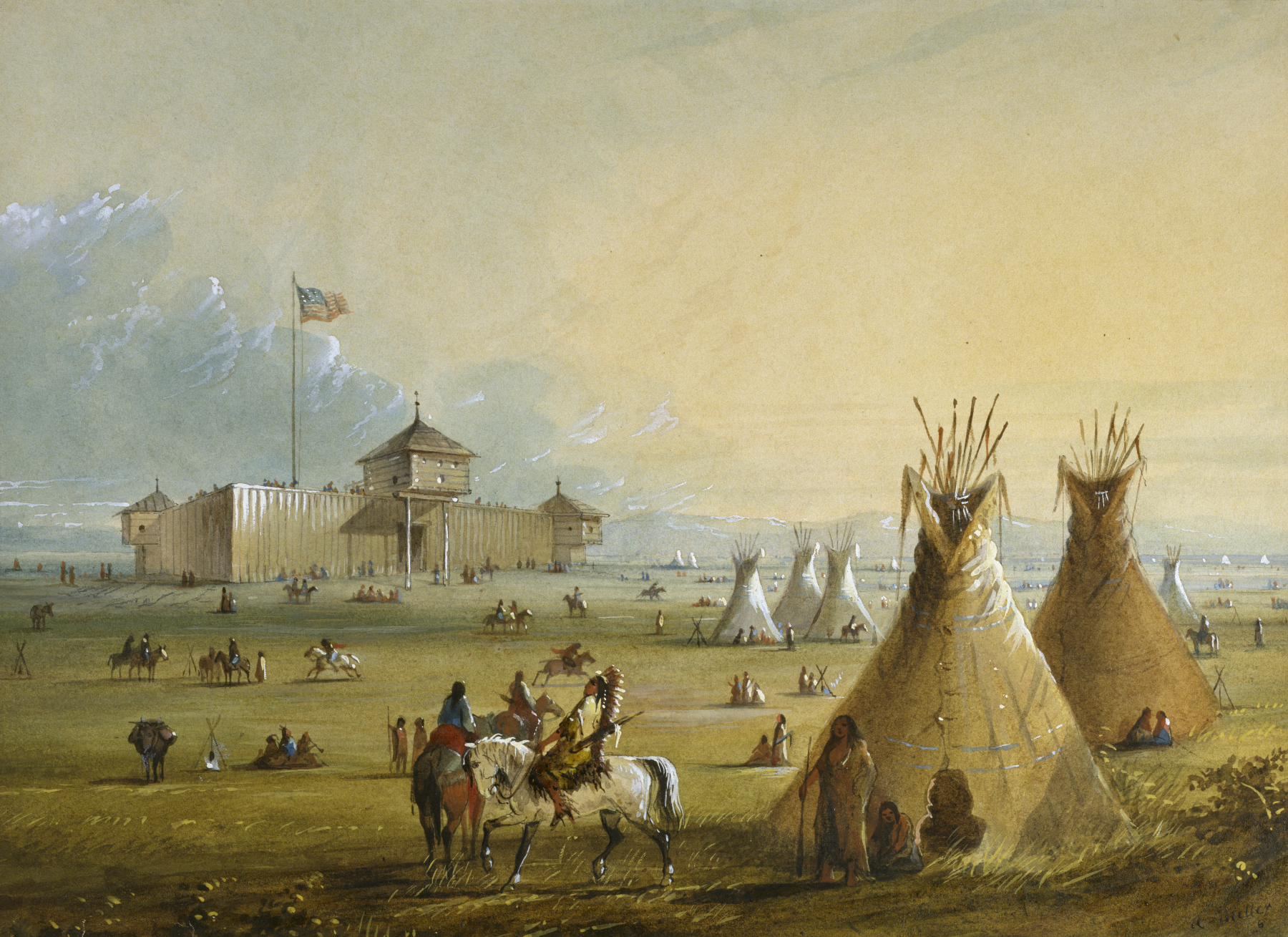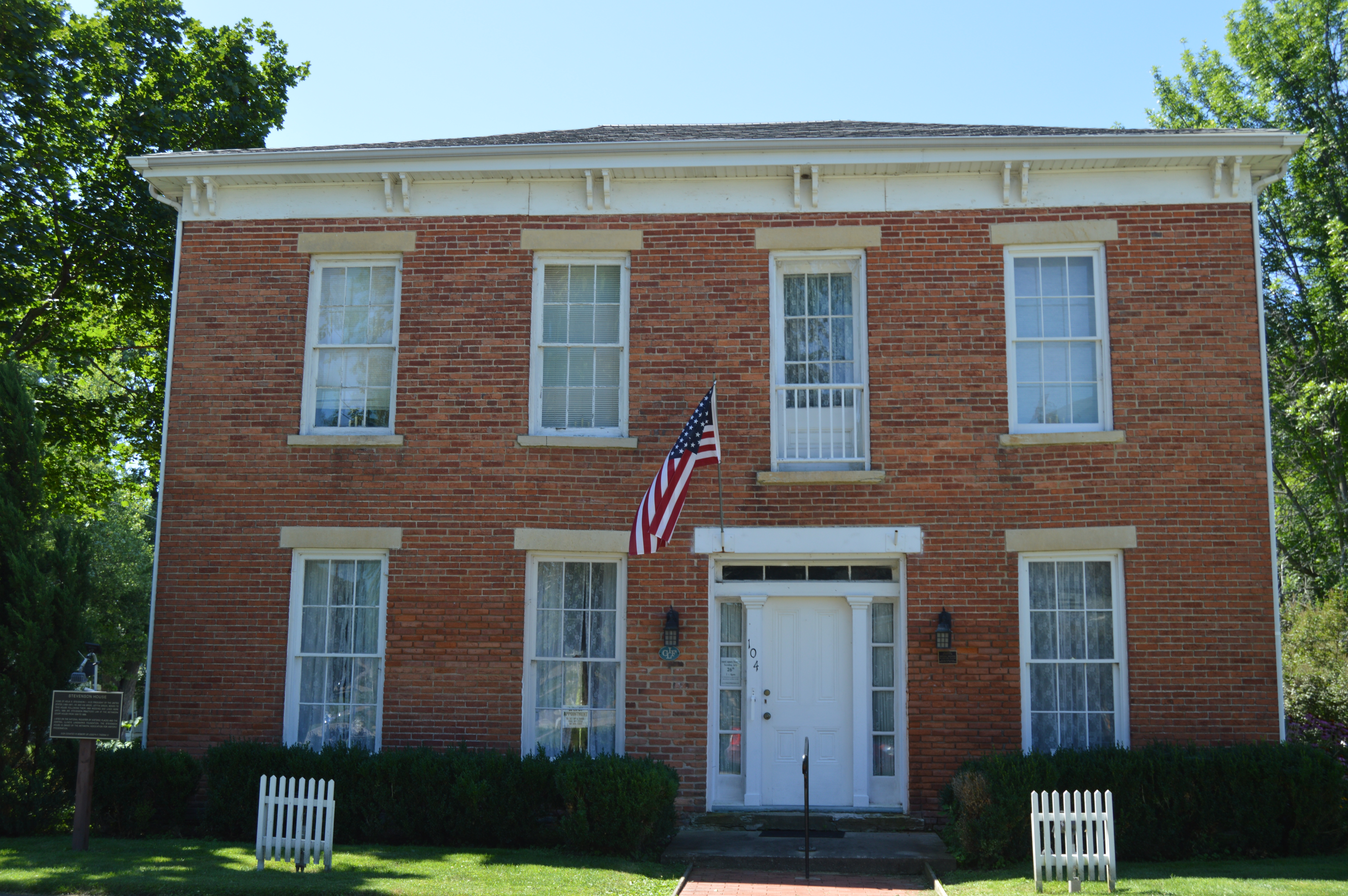|
1892 Republican National Convention
The 1892 Republican National Convention was held at the Industrial Exposition Building, Minneapolis, Minnesota, from June 7 to June 10, 1892. The party nominated President Benjamin Harrison for re-election on the first ballot and Whitelaw Reid of New York for vice president. James S. Clarkson of Iowa was the outgoing chairman of the Republican National Committee. J. Sloat Fassett of New York was Temporary Chairman, and Governor William McKinley Jr. of Ohio was the Permanent Chair of the convention. Harrison's Secretary of State James G. Blaine, who had resigned from the cabinet on June 4, 1892, the eve of the convention, had his name submitted for consideration by the delegates, but drew little support. Future president William McKinley barely edged out Blaine for second place among the delegates. Although successful in his bid for re-nomination, President Harrison's performance was underwhelming for an incumbent, due in part to the crushing defeat that the party had suffered ... [...More Info...] [...Related Items...] OR: [Wikipedia] [Google] [Baidu] |
Minneapolis, Minnesota
Minneapolis () is the largest city in Minnesota, United States, and the county seat of Hennepin County. The city is abundant in water, with thirteen lakes, wetlands, the Mississippi River, creeks and waterfalls. Minneapolis has its origins in timber and as the flour milling capital of the world. It occupies both banks of the Mississippi River and adjoins Saint Paul, the state capital of Minnesota. Prior to European settlement, the site of Minneapolis was inhabited by Dakota people. The settlement was founded along Saint Anthony Falls on a section of land north of Fort Snelling; its growth is attributed to its proximity to the fort and the falls providing power for industrial activity. , the city has an estimated 425,336 inhabitants. It is the most populous city in the state and the 46th-most-populous city in the United States. Minneapolis, Saint Paul and the surrounding area are collectively known as the Twin Cities. Minneapolis has one of the most extensive public ... [...More Info...] [...Related Items...] OR: [Wikipedia] [Google] [Baidu] |
James S
James is a common English language surname and given name: *James (name), the typically masculine first name James * James (surname), various people with the last name James James or James City may also refer to: People * King James (other), various kings named James * Saint James (other) * James (musician) * James, brother of Jesus Places Canada * James Bay, a large body of water * James, Ontario United Kingdom * James College, a college of the University of York United States * James, Georgia, an unincorporated community * James, Iowa, an unincorporated community * James City, North Carolina * James City County, Virginia ** James City (Virginia Company) ** James City Shire * James City, Pennsylvania * St. James City, Florida Arts, entertainment, and media * ''James'' (2005 film), a Bollywood film * ''James'' (2008 film), an Irish short film * ''James'' (2022 film), an Indian Kannada-language film * James the Red Engine, a character in ''Thom ... [...More Info...] [...Related Items...] OR: [Wikipedia] [Google] [Baidu] |
Irish Home Rule Movement
The Irish Home Rule movement was a movement that campaigned for self-government (or "home rule") for Ireland within the United Kingdom of Great Britain and Ireland. It was the dominant political movement of Irish nationalism from 1870 to the end of World War I. Isaac Butt founded the Home Government Association in 1870. This was succeeded in 1873 by the Home Rule League, and in 1882 by the Irish Parliamentary Party. These organisations campaigned for home rule in the British House of Commons. Under the leadership of Charles Stewart Parnell, the movement came close to success when the Liberal government of William Ewart Gladstone introduced the First Home Rule Bill in 1886, but the bill was defeated in the House of Commons after a split in the Liberal Party. After Parnell's death, Gladstone introduced the Second Home Rule Bill in 1893; it passed the Commons but was defeated in the House of Lords. After the removal of the Lords' veto in 1911, the Third Home Rule Bill ... [...More Info...] [...Related Items...] OR: [Wikipedia] [Google] [Baidu] |
Bimetallism
Bimetallism, also known as the bimetallic standard, is a monetary standard in which the value of the monetary unit is defined as equivalent to certain quantities of two metals, typically gold and silver, creating a fixed rate of exchange between them. For scholarly purposes, "proper" bimetallism is sometimes distinguished as permitting that both gold and silver money are legal tender in unlimited amounts and that gold and silver may be taken to be coined by the government mints in unlimited quantities. This distinguishes it from "limping standard" bimetallism, where both gold and silver are legal tender but only one is freely coined (e.g. the moneys of France, Germany, and the United States after 1873), and from "trade" bimetallism, where both metals are freely coined but only one is legal tender and the other is used as "trade money" (e.g. most moneys in western Europe from the 13th to 18th centuries). Economists also distinguish ''legal'' bimetallism, where the law guar ... [...More Info...] [...Related Items...] OR: [Wikipedia] [Google] [Baidu] |
Levi Morton
Levi Parsons Morton (May 16, 1824 – May 16, 1920) was the 22nd vice president of the United States from 1889 to 1893. He also served as United States ambassador to France, as a U.S. representative from New York, and as the 31st Governor of New York. The son of a Congregational minister, Morton was born in Vermont and educated at public schools in Vermont and Massachusetts. He trained for a business career by clerking in stores and working in mercantile establishments in Massachusetts and New Hampshire. After relocating to New York City, Morton became a successful merchant, cotton broker, and investment banker. Active in politics as a Republican, Morton was an ally of Roscoe Conkling. He was twice elected to the United States House of Representatives, and he served one full term, and one partial one (March 4, 1879 – March 21, 1881). In 1880, Republican presidential nominee James A. Garfield offered Morton the vice presidential nomination in an effort to win over Co ... [...More Info...] [...Related Items...] OR: [Wikipedia] [Google] [Baidu] |
Matthew Quay
Matthew Stanley "Matt" Quay (September 30, 1833May 28, 1904) was an American politician of the Republican Party who represented Pennsylvania in the United States Senate from 1887 until 1899 and from 1901 until his death in 1904. Quay's control of the Pennsylvania Republican political machine made him one of the most powerful and influential politicians in the country, and he ruled Pennsylvania politics for almost twenty years. As chair of the Republican National Committee and thus party campaign manager, he helped elect Benjamin Harrison as president in 1888 despite his not winning the popular vote. He was also instrumental in the 1900 election of Theodore Roosevelt as vice president. Quay studied law and began his career in public office by becoming prothonotary of Beaver County, Pennsylvania, in 1856. He became personal secretary to Governor Andrew Curtin in 1861 after campaigning for him the previous year. During the Civil War, he served in the Union Army, commanding the 134 ... [...More Info...] [...Related Items...] OR: [Wikipedia] [Google] [Baidu] |
John Sherman
John Sherman (May 10, 1823October 22, 1900) was an United States, American politician from Ohio throughout the American Civil War, Civil War and into the late nineteenth century. A member of the Republican Party (United States), Republican Party, he served in both houses of the U.S. Congress. He also served as United States Secretary of the Treasury, Secretary of the Treasury and United States Secretary of State, Secretary of State. Sherman sought the Republican presidential nomination three times, coming closest 1888 Republican National Convention, in 1888, but was never chosen by the party. Born in Lancaster, Ohio, Sherman later moved to Mansfield, Ohio, where he began a law career before entering politics. Initially a Whig Party (United States), Whig, Sherman was among those Abolitionism in the United States, anti-slavery activists who formed what became the Republican Party. He served three terms in the House of Representatives. As a member of the House, Sherman traveled to ... [...More Info...] [...Related Items...] OR: [Wikipedia] [Google] [Baidu] |
United States Senate
The United States Senate is the upper chamber of the United States Congress, with the House of Representatives being the lower chamber. Together they compose the national bicameral legislature of the United States. The composition and powers of the Senate are established by Article One of the United States Constitution. The Senate is composed of senators, each of whom represents a single state in its entirety. Each of the 50 states is equally represented by two senators who serve staggered terms of six years, for a total of 100 senators. The vice president of the United States serves as presiding officer and president of the Senate by virtue of that office, despite not being a senator, and has a vote only if the Senate is equally divided. In the vice president's absence, the president pro tempore, who is traditionally the senior member of the party holding a majority of seats, presides over the Senate. As the upper chamber of Congress, the Senate has several powers ... [...More Info...] [...Related Items...] OR: [Wikipedia] [Google] [Baidu] |
United States Secretary Of State
The United States secretary of state is a member of the executive branch of the federal government of the United States and the head of the U.S. Department of State. The office holder is one of the highest ranking members of the president's Cabinet, and ranks the first in the U.S. presidential line of succession among Cabinet secretaries. Created in 1789 with Thomas Jefferson as its first office holder, the secretary of state represents the United States to foreign countries, and is therefore considered analogous to a foreign minister in other countries. The secretary of state is nominated by the president of the United States and, following a confirmation hearing before the Senate Committee on Foreign Relations, is confirmed by the United States Senate. The secretary of state, along with the secretary of the treasury, secretary of defense, and attorney general, are generally regarded as the four most crucial Cabinet members because of the importance of their respective ... [...More Info...] [...Related Items...] OR: [Wikipedia] [Google] [Baidu] |
Governor Of Ohio
A governor is an administrative leader and head of a polity or political region, ranking under the head of state and in some cases, such as governors-general, as the head of state's official representative. Depending on the type of political region or polity, a ''governor'' may be either appointed or elected, and the governor's powers can vary significantly, depending on the public laws in place locally. The adjective pertaining to a governor is gubernatorial, from the Latin root ''gubernare''. Ancient empires Pre-Roman empires Though the legal and administrative framework of provinces, each administrated by a governor, was created by the Romans, the term ''governor'' has been a convenient term for historians to describe similar systems in antiquity. Indeed, many regions of the pre-Roman antiquity were ultimately replaced by Roman 'standardized' provincial governments after their conquest by Rome. Plato used the metaphor of turning the Ship of State with a rudder; the Latin ... [...More Info...] [...Related Items...] OR: [Wikipedia] [Google] [Baidu] |
Wyoming
Wyoming () is a state in the Mountain West subregion of the Western United States. It is bordered by Montana to the north and northwest, South Dakota and Nebraska to the east, Idaho to the west, Utah to the southwest, and Colorado to the south. With a population of 576,851 in the 2020 United States census, Wyoming is the least populous state despite being the 10th largest by area, with the second-lowest population density after Alaska. The state capital and most populous city is Cheyenne, which had an estimated population of 63,957 in 2018. Wyoming's western half is covered mostly by the ranges and rangelands of the Rocky Mountains, while the eastern half of the state is high-elevation prairie called the High Plains. It is drier and windier than the rest of the country, being split between semi-arid and continental climates with greater temperature extremes. Almost half of the land in Wyoming is owned by the federal government, generally protected for public uses. The stat ... [...More Info...] [...Related Items...] OR: [Wikipedia] [Google] [Baidu] |
Adlai Stevenson I
Adlai Ewing Stevenson (October 23, 1835 – June 14, 1914) was an American politician who served as the 23rd vice president of the United States from 1893 to 1897. He had served as a U.S. Representative from Illinois in the late 1870s and early 1880s. After his appointment as assistant postmaster general of the United States during Grover Cleveland's first administration (1885–1889), he fired many Republican postal workers and replaced them with Southern Democrats. This earned him the enmity of the Republican-controlled Congress, but made him a favorite as Grover Cleveland's running mate in 1892, and he was elected vice president of the United States. In office, he supported the free-silver lobby against the gold-standard men like Cleveland, but was praised for governing in a dignified, non-partisan manner. In 1900, he ran for vice president with William Jennings Bryan. In doing so, he became the fourth vice president or former vice president to run for that post teamed ... [...More Info...] [...Related Items...] OR: [Wikipedia] [Google] [Baidu] |







